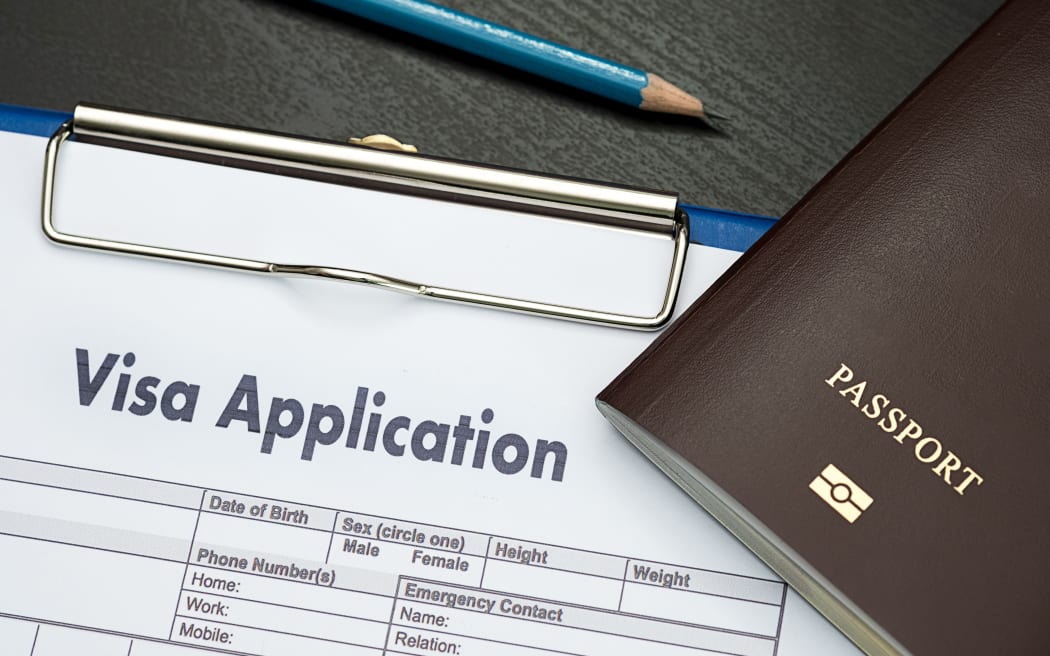The hole in Immigration New Zealand books has blown out to almost $135 million and it has now been more than a decade since the agency raised more in visa revenue than it spent.

File image. Photo: 123rf.com
Immigration New Zealand (INZ) said since the border closed it had taken cost-cutting steps on travel and recruitment and redeployed some staff.
It has not answered questions on whether there will be redundancies, but told the immigration minister it needs to "right-size" its operations.
The deficit in its visa memorandum account - which reconciles department costs and user-pays fees - reached a record $65 million in the year to July 2019. That had been brought down to $58m by February 2020 but the dwindling visa revenue this year meant the deficit continued to climb and reached $134.6m by the end of the financial year in June.
A briefing to the incoming minister for immigration, Kris Faafoi, who took over from the sacked Iain Lees-Galloway in July, highlighted the scale of the problem.
It said that as most of INZ's operations were funded from visa fees and levies, with the sharp decrease INZ faced a substantial financial challenge, and needed to make significant changes to its operations "in order to right size the business". The rest of that section of the briefing, released under the Official Information Act, is redacted, and INZ has not commented on the possibility of redundancies.
In an updated briefing after the election, "ensuring operationally and financially sustainable models" for INZ is one of four bullet points under "immediate priorities".
"The reduction in visa applications caused by Covid-19 has worsened deficits that existed prior to Covid-19 due to drops in third party fees and levies," it said.
"The visa processing system needs to be resilient and flexible to respond to an uncertain and changing environment."
The slump in visa volumes is stark. In the 2018/19 year, INZ issued a million visas for 1.9 million people; in the six months to the start of December only 133,915 visa applications were processed. It had predicted funding for 2020/21 from customer fees to be $269m, but it is now expected to be $134m. That suggests the taxpayer will pay for almost half of INZ's funding, compared to the forecast proportion of less than a third.
'Perfect storm of disasters'
Immigration lawyer Alastair McClymont said Covid-19 had compounded a budget blowout in the multi-million dollar reorganisation of global immigration branches three years ago. Cost savings from that project had not met predictions and other factors played into the deficit.
"The application fees being paid by applicants cover a lot of the processing costs," he said.
"Probably the most expensive of the applications is the skilled migrant resident visa applications and people have been unable to submit those applications for most of 2020 so they would have taken a huge hit on that as well.
McClymont said there had also been backlogs that INZ needed to put staff into and a "failure to have residence programme numbers for processing applications".
"It's just been a perfect storm of disasters for Immigration New Zealand. It seems to be that they're just fumbling from one disaster to another ... it just seems to be a department which is in complete chaos."
Visa budget
The last time visa budget was in surplus was in 2008/9. The auditor-general noted in 2012 that the visas and permits memorandum account, as it was then, had a deficit balance of $36.4m and that "if clear plans are not put in place, entities run the risk that surpluses or deficits become uncontrollable."
Visa applicants pay for most of the cost of running immigration's processing facilities, while the taxpayer funds certain items such as refugee services and policy advice.
By 2018 the visa memorandum account had not been in surplus and was getting worse - this time not on lower visa numbers, but after far more people applied than forecast, which the then immigration minister described as "grossly inaccurate" predictions.
Cabinet raised visa fees - work visa fees were increased by up to 54 per cent - on forecasts of a net operating surplus from 2017/18 which would "reduce the account deficit and bring it closer to zero". The report from a consultation on those rises noted that a "number of stakeholders argued that INZ should work harder to minimise costs and maximise efficiencies in its business process and visa processing."
Further government injections of money were also made - $120m in operating funding over five years.
Cost-saving moves
An INZ spokesperson said from March 2020, the full effect of global lockdowns and the border restrictions saw the third party revenue INZ receives decrease significantly, and the memo account deficit increased as a result.
"As a result of changes in the volume and type of applications being received and the pressing financial situation, MBIE has undertaken a short-term cost saving effort across the immigration programme, including rigorous scrutiny of all intended travel and recruitment," she said.
"INZ has also made a number of operational decisions to better reflect the current situation. This includes redeploying visa processing staff to ensure resources are focused on visa categories where volumes remain steady, as well as redeploying staff to other parts of MBIE, including some to managed isolation and quarantine. However, this is a short-term response to the immediate situation and takes advantage of the fact that activity in some areas has reduced.
"MBIE is subject to internal and external monitoring of its financial management. At a high level, all expenditure must comply with Treasury guidelines and the Public Finance Act. INZ regularly reviews our operating model and financial position and we will continue to do so in line with any changes to the Covid-19 global pandemic and current border restrictions."



